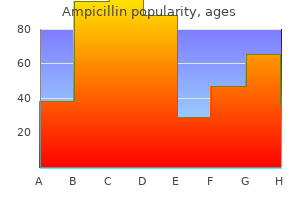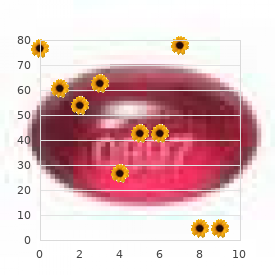"Buy 500 mg ampicillin mastercard, virus barrier".
K. Daro, M.A.S., M.D.
Program Director, Eastern Virginia Medical School
Detoxification pro grams in particular antimicrobial plastic buy 250mg ampicillin visa, as opposed to some other areas of substance abuse treatment antibiotics for uti price cheap 500mg ampicillin visa, may be attractive candidates for private financing because of their potential to serve privately insured and selfpay patients antimicrobial humidifier ampicillin 250 mg for sale. However antibiotic resistance articles cheap ampicillin 500 mg without prescription, acceptance of private capital usually carries with it requirements for rapid growth in rev Funding Streams and Other Resources in the Substance Abuse Treatment Environment Substance abuse treatment and detoxification services in the United States are financed through a diverse mix of public and private sources, with substantially more being spent by the public sector. Public sources account for 64 percent of all substance abuse treat ment spending, a much higher percentage than public expenditure for the rest of health care (Coffey et al. The existence of diverse funding streams presents both man agement challenges and opportunities for pro gram independence and stability. Diversification of funding sources should be a major goal for detoxification programs. Because of this, any new or existing detoxifi cation program requires a fairly sophisticated management and accounting system to meet Financing and Organizational Issues 147 enues and profitability that may be difficult to meet and may limit operational flexibility, at least in the short term. In the longer term, successful detoxification programs may be able to generate profits. Funding streams associated with public and private health insurance often provide bene fits to covered individuals that vary according to whether or not the services are facility based and accord ing to the level or setting of care. The Substance Complexity arises because coverage Abuse Prevention and reimbursement depend both on and Treatment whether a service is considered to be a Block Grant medical service or a substance abuse program is the treatment service and whether a ser cornerstone of vice is facility based. Any episode of detoxification may be denied reimbursement under a plan if medi cal necessity is not demonstrated to the satis faction of the plan or if the service is provid ed at a higher level of care than is judged medically necessary. It is important to decide whether to make a new detoxification program hospitalbased, facilitybased, or officebased. Services that are considered hospital or facilitybased, like those in hospital outpatient departments, often are eligible for higher payment rates than officebased services to reflect their greater capital and other overhead costs. Similarly, hospital inpatient services often are reimbursed at a higher payment rate than outpatient services, but medical necessity determinations also require patients to need more intensive services. Sometimes, patient copayments or coinsurance rates may be higher for officebased services than facility based services. Detoxification programs that are parts of hos pitals, affiliated with a hospital, or consid ered as a licensed facility themselves may be eligible for higher rates of reimbursement than are those that are considered to be out patient programs with no facility license. However, utilization management criteria to authorize payment for admission to and con tinued stay in a hospital inpatient setting require a significantly greater severity of patient diagnosis than do criteria for admis sion and continued stay in a freestanding or outpatient program. On the other hand, often there are high barriers to obtaining a facility license to open a freestanding 24hour facility or licensed outpatient detoxification facility. Programs that are part of or affiliated with hospitals also must contend with overhead cost allocations from the hospital as well as with oversight from hospital administrators who may know little about substance abuse treatment or detoxification. In addition, some health insurance plans actually exclude cov erage for hospitalbased or freestanding facil itybased detoxification programs and others may subject admissions to such programs to Chapter 6 Federal funding for substance Many public and private benefit plans still classify abuse treatment substance abuse detoxification as a and detoxification medical rather than a substance abuse programs. In general, and especially for employerbased coverage, benefits under a medical plan are provided at higher reimbursement rates with fewer limits and restrictions than are benefits for substance abuse treatment (Merrick et al. Requirements for outofpocket pay ments by those covered under these plans typically are lower under the medical portion of a plan than under the substance abuse treatment portion. Program planners should consider carefully all alternatives; decisions concerning affilia tion with a hospital or pursuit of a facility license have farreaching financial and politi cal ramifications and should be made with as much information as possible. Following is a discussion of the key funding streams and resources that are available for programs providing detoxification services. Services may be paid for through grants, contracts, feeforservice, and/or managed care arrangements. Treatment purchasing systems may evolve over time; managed care arrangements and require ments are increasingly common. Each program should check to see if the clients it intends to serve are eligible for block grant funding, either for setasides or for other funds. Each State maintains its own criteria for eligibility and the criteria and definitions vary greatly among States. Multistate providers will need to check specifically in each State in which they operate. Medicaid is being used by many States as a vehicle for experimentation with public sector managed care in an effort to expand medical coverage to the uninsured.
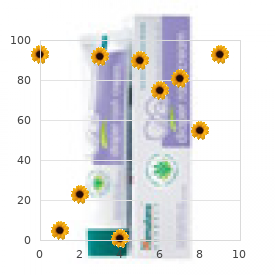
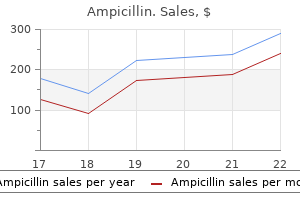
New data from the Addiction Severity Index: Reliability and validity in three centers the infection 0 origins movie generic ampicillin 500 mg line. An improved diagnostic evaluation instrument for substance abuse patients: the Addiction Severity Index antibiotic resistance video youtube ampicillin 250mg low cost. Components of successful treatment pro grams: Lessons from the research litera ture antibiotics lyme purchase ampicillin 250 mg online. Comorbidity and boundaries of affective disorders with anx iety disorders and substance misuse: Results of an international task force antibiotic treatment for cellulitis purchase ampicillin 250 mg on line. Psychopathology in pregnant drugdependent women with and without comorbid alcohol dependence. Comorbidity of psychiatric and alcohol/drug disorders: Interactions and independent status. Effectiveness of coerced addiction treatment (alternative consequences): A review of the clinical research. Abuse, addic tion, tolerance, and dependence to benzo diazepines in medical and nonmedical pop ulations. Dissociation of "conscious desire" (craving) from and relapse in alcohol and cocaine depen dence. Management of withdrawal syndromes and relapse preven tion in drug and alcohol dependence. Engaging the unmotivated in treat ment for alcohol problems: A comparison of three strategies for intervention through family members. Toward an understanding of alcohol abuse among the elderly: A socio logical perspective. Alcoholrelated seizures and the kindling effect of repeated detoxifications: the influence of cocaine. Diagnosis and treatment of alcoholdepen dent patients with comorbid psychiatric disorders. Effectiveness of treatment for substance abuse and dependence for dual diagnosis patients: A model of treatment factors associated with oneyear outcomes. Effectiveness and costeffectiveness of four treatment modalities for substance disorders: A propensity score analysis. Nutritional status of drug addicts undergoing detoxifi cation: Prevalence of malnutrition and influence of illicit drugs and lifestyle. Serum vitamin E, C and A status of the drug addicts undergoing detoxification: Influence of drug habit, sexual practice and lifestyle factors. Establishing and maintaining a therapeutic alliance with substance abuse patients: A cognitive therapy approach. Beyond the Therapeutic Alliance: Keeping the DrugDependent Individual in Treatment. Study finds widespread implementation of managed behavioral health care programs in the public sector. Multicenter trial of fluoxetine as an adjunct to behavioral smoking cessation treatment. Methamphetamine users in sustained abstinence: a proton magnetic resonance spectroscopy study. A brief telephone intervention targeting treatment engagement from a substance abuse program wait list. Racial identi ty and its assessment in a sample of AfricanAmerican men in treatment for cocaine dependence. Effect of counselor and client education in nicotine addiction on smoking in substance abusers. Cognitive behavioral therapy to reduce weight con cerns improves smoking cessation outcome in weightconcerned women. Assessment of Performance Measures for Public Health, Substance Abuse, and Mental Health. Opiate detoxification under anesthesia: No appar ent benefit but suppression of thyroid hor mones and risk of pulmonary and renal failure.
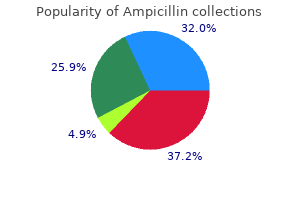
The patient prefers it after a risk/beneft discussion that covers alternative treatments antibiotics liver cheap ampicillin 250mg on-line. There are available follow-up opportunities for ongoing medication maintenance upon discharge bacteria mitochondria buy ampicillin 500mg lowest price. Postdischarge coordination of care with outpatient programs and outpatient providers antibiotic resistant urinary infection 500 mg ampicillin sale. Injectable antibiotic pipeline purchase ampicillin 250mg amex, sustained-release naltrexone for the treatment of opioid dependence: A randomized, placebo-controlled trial. Injectable extended-release naltrexone for opioid dependence: A double-blind, placebo-controlled, multicentre randomised trial. Opioid treatment at release from jail using extended-release naltrexone: A pilot proof-of-concept randomized effectiveness trial. Buprenorphine maintenance versus placebo or methadone maintenance for opioid dependence. From morphine clinics to buprenorphine: Regulating opioid agonist treatment of addiction in the United States. Buprenorphine implants for treatment of opioid dependence: A randomized controlled trial. A randomized clinical trial of methadone maintenance for prisoners: Results at twelve-months post-release. A randomized trial of buprenorphine for prisoners: Findings at 12-months post-release. The effectiveness of injectable extended-release naltrexone vs daily buprenorphine-naloxone for opioid dependence: A randomized clinical noninferiority trial. Mortality among clients of a state-wide opioid pharmacotherapy program over 20 years: Risk factors and lives saved. Distinctive trajectories of opioid use over an extended follow-up of patients in a multisite trial on buprenorphine + naloxone and methadone. Long-term treatment with buprenorphine/ naloxone in primary care: Results at 2-5 years. Opiate addiction and cocaine addiction: Underlying molecular neurobiology and genetics. Psychosocial and pharmacological treatments versus pharmacological treatments for opioid detoxifcation. Relapse to opioid use disorder after inpatient treatment: Protective effect of injection naltrexone. Human immunodefciency virus seroconversion among intravenous drug users in- and out-of-treatment: An 18-month prospective follow-up. Label: Methadose - methadone hydrochloride concentrate; Methadose sugar-free- methadone hydrochloride concentrate. Interindividual variability of the clinical pharmacokinetics of methadone: Implications for the treatment of opioid dependence. Benzodiazepines, methadone and buprenorphine: Interactions and clinical management. Methadone safety: A clinical practice guideline from the American Pain Society and College on Problems of Drug Dependence, in collaboration with the Heart Rhythm Society. Methadone dosing and prescribed medication use in a prospective cohort of opioid-dependent pregnant women. Predicting treatment for neonatal abstinence syndrome in infants born to women maintained on opioid agonist medication. A study of methadone maintenance for male prisoners: 3-month postrelease outcomes. When "enough" is not enough: New perspectives on optimal methadone maintenance dose. Clinical guidance for treating pregnant and parenting women with opioid use disorder and their infants. Effects of grapefruit juice on the pharmacokinetics of the enantiomers of methadone.
